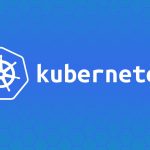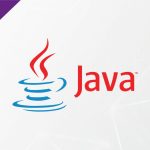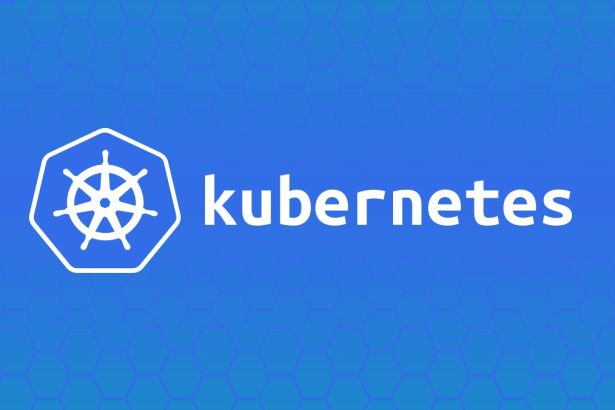Combining DevOps and Spring Boot skills is a game-changer for developers aiming to build scalable, efficient, and resilient applications. While Spring Boot simplifies Java-based application development, DevOps ensures smooth automation, deployment, and application management. Together, they empower developers to align with modern software practices, enabling faster releases and seamless scaling in dynamic environments.
This blog lists the top 20 learning resources for DevOps and Spring Boot in 2025, ranging from free tutorials to advanced training programs. By using these resources and integrating DevOps practices with Spring Boot development, you can master the tools and concepts needed to excel in today’s competitive tech landscape.
Table of Contents
-
- 1. Spring Boot Official Documentation
- 2. Docker Official Documentation
- 3. Kubernetes (K8s) Official Documentation
- 4. Jenkins User Documentation
- 5. Linux Academy (Now ACG)
- 6. KodeKloud DevOps Courses
- 7. Udemy’s Microservices with Spring Boot and Spring Cloud
- 8. AWS Training for DevOps
- 9. Pluralsight DevOps Fundamentals
- 10. Baeldung’s Spring Boot Resources
- 11. DevOps Institute Webinars
- 12. TechWorld with Nana – YouTube
- 13. Spring Boot Microservices in Action (Book)
- 14. Kubernetes Academy by VMware
- 15. FreeCodeCamp DevOps Tutorials
- 16. Jenkins Pipeline Unit Blog Posts
- 17. HashiCorp’s Terraform Documentation
- 18. DZone’s DevOps Section
- 19. InfoQ DevOps Podcasts
- 20. Google Cloud DevOps Training
- Tips to Integrate DevOps Practices with Spring Boot
- Summary
- FAQs About Learning DevOps and Spring Boot
1. Why Combine DevOps and Spring Boot?
Developers increasingly need to understand the overlap between DevOps pipelines and Spring Boot development to ensure seamless application delivery. Together, these two domains bridge the gap between code and operations, ensuring applications are created, tested, and deployed efficiently.
Key Benefits of Combining DevOps and Spring Boot:
- Efficient Delivery Pipelines: DevOps tools like Jenkins, Docker, and Kubernetes enable automation, reducing manual error during deployment.
- Scalability: Spring Boot integrates seamlessly with Kubernetes for creating and managing microservices.
- Speed: Combine the rapid setup features of Spring Boot with automated DevOps pipelines for faster releases.
- Dynamic Scaling: Spring Boot’s microservices align perfectly with DevOps orchestration tools (e.g., Kubernetes for scaling and Docker for containerization).
2. Top 20 Learning Resources for DevOps + Spring Boot
1. Spring Boot Official Documentation
What It Offers: The definitive resource for learning Spring Boot, including guides, examples, and best practices.
Why Use It: Essential for understanding configurations, annotations, and best practices for building applications.
Website: Spring Boot Docs
2. Docker Official Documentation
What It Offers: Step-by-step tutorials on creating and running Docker containers.
Why Use It: Learn containerization fundamentals, a critical skill in DevOps pipelines.
Website: Docker Docs
3. Kubernetes (K8s) Official Documentation
What It Offers: Detailed guides on managing workloads in Kubernetes.
Why Use It: Understand key Kubernetes concepts like deployments, replicas, and pods.
Website: Kubernetes Docs
4. Jenkins User Documentation
What It Offers: Guides to automate CI/CD workflows with Jenkins pipelines.
Why Use It: Vital for integrating Spring Boot builds into fully automated CI/CD pipelines.
Website: Jenkins Docs
5. Linux Academy (Now ACG)
What It Offers: Interactive courses on DevOps, Docker, Kubernetes, and AWS.
Why Use It: Perfect for developers looking for in-depth practical training.
Website: A Cloud Guru
6. KodeKloud DevOps Courses
What It Offers: Comprehensive hands-on scenarios for Docker, Jenkins, and Kubernetes.
Why Use It: Excellent for learning DevOps tools through real-world simulations.
Website: KodeKloud
7. Udemy’s Microservices with Spring Boot and Spring Cloud
What It Offers: Learn Spring Boot microservices and integrate them with Docker and Kubernetes.
Why Use It: Tailored for Java developers building distributed systems.
Website: Udemy Microservices Course
8. AWS Training for DevOps
What It Offers: Learn cloud-native DevOps with serverless computing and container orchestration.
Why Use It: Combine AWS DevOps tools with Spring Boot and Docker applications.
Website: AWS Training
9. Pluralsight DevOps Fundamentals
What It Offers: Video-based DevOps foundational concepts aimed at developers.
Why Use It: Learn to integrate scripting, monitoring, and CI/CD tools.
Website: Pluralsight DevOps Training
10. Baeldung’s Spring Boot Resources
What It Offers: Guides for building Spring Boot applications with REST API support.
Why Use It: Perfect for learning advanced features like Spring Security and Actuator.
Website: Baeldung
11. DevOps Institute Webinars
What It Offers: On-demand webinars about DevOps trends and tools.
Why Use It: Stay updated with the latest methodologies and practices.
Website: DevOps Institute
12. TechWorld with Nana – YouTube
What It Offers: Visual tutorials on Docker, Kubernetes, and Spring Boot.
Why Use It: Beginner-friendly videos for mastering both foundational and advanced topics.
Channel: TechWorld with Nana
13. Spring Boot Microservices in Action (Book)
What It Offers: Build robust microservices with Spring Boot using step-by-step examples.
Why Use It: Learn about service discovery, monitoring, and resilience patterns.
Book Link: Spring Boot Microservices in Action
14. Kubernetes Academy by VMware
What It Offers: Free video tutorials on Kubernetes fundamentals tailored for beginners.
Why Use It: Learn how to deploy Spring Boot apps in Kubernetes.
Website: Kubernetes Academy
15. FreeCodeCamp DevOps Tutorials
What It Offers: Free hands-on tutorials for Docker and Kubernetes.
Why Use It: Perfect for beginners looking for simple, actionable lessons.
Channel Link: FreeCodeCamp
16. Jenkins Pipeline Unit Blog Posts
What It Offers: Best practices for writing Jenkinsfile pipelines.
Why Use It: Learn CI/CD integration with Spring Boot applications.
Website: Jenkins Blog
17. HashiCorp’s Terraform Documentation
What It Offers: Learn infrastructure as code (IaC) with Terraform.
Why Use It: Automate infrastructure deployment for Spring Boot apps.
Website: Terraform Docs
18. DZone’s DevOps Section
What It Offers: Articles on DevOps tools, tips, and case studies.
Why Use It: Stay updated with the latest practices and solutions.
Website: DZone DevOps
19. InfoQ DevOps Podcasts
What It Offers: Insightful discussions on DevOps trends, tools, and real-world implementations.
Why Use It: Gain in-depth understanding from field experts.
Website: InfoQ
20. Google Cloud DevOps Training
What It Offers: Learn DevOps principles and cloud automation tools on GCP.
Why Use It: Develop, deploy, and manage your Spring Boot applications on Google Cloud.
Website: Google Cloud Training
3. Tips to Integrate DevOps Practices with Spring Boot
- Automate Builds and Deployments: Use Jenkins pipelines to automate Spring Boot builds and Docker container deployments.
- Containerize Applications: Start by containerizing Spring Boot apps with Docker.
- Orchestrate with Kubernetes: Learn to deploy, scale, and manage containers using Kubernetes.
- Enable Monitoring: Use tools like Prometheus and Grafana for tracking application performance.
- Practice Infrastructure as Code: Deploy your environments consistently using tools like Terraform.
4. Summary
Mastering DevOps and Spring Boot together ensures you can build, deploy, and scale modern software systems seamlessly. With the listed resources, you can take a structured approach to gaining expertise in both domains. By improving efficiency, fostering collaboration, and building scalable solutions, you’ll set yourself apart in today’s competitive job market.
5. FAQs About Learning DevOps and Spring Boot
1. How long does it take to learn DevOps and Spring Boot?
It depends on your background, but dedicated learners can achieve basic proficiency within 4-6 months.
2. Can I learn DevOps without learning Spring Boot?
Yes, but combining both expands your versatility, especially for backend and cloud-native application development.
3. Do I need a programming background to learn DevOps?
Having a basic understanding of programming helps, but it’s not mandatory.
Dive into these resources and start your learning path today to become proficient in Spring Boot and DevOps!




